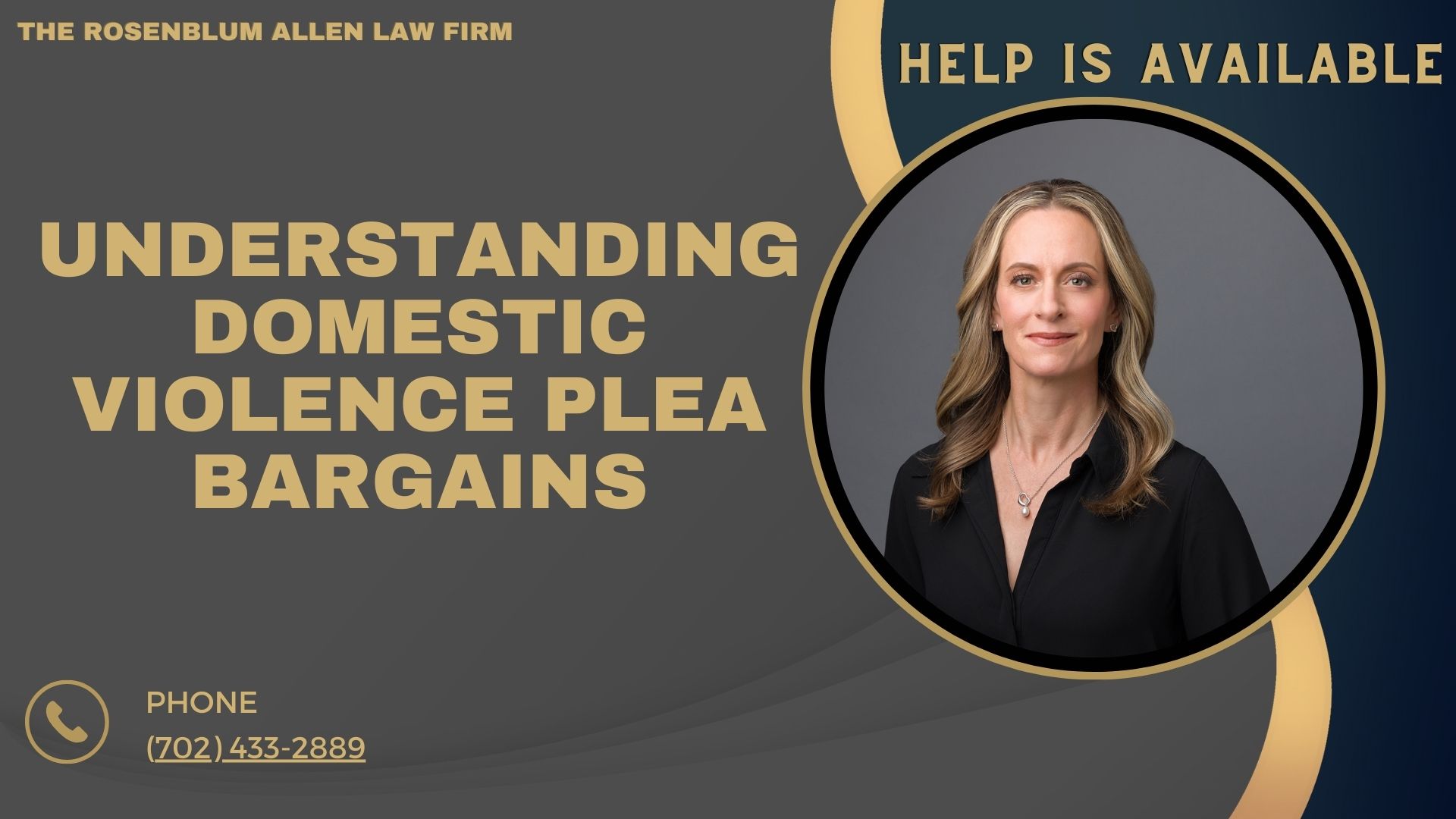Are you facing domestic violence charges? Feeling overwhelmed and unsure about your next steps? You’re not alone. Many people are in this challenging situation, grappling with complex legal terms and life-changing decisions.
Let’s explore the world of domestic violence plea bargains together. We’ll explain what they are, their pros and cons, and help you understand your options.
 What is a Domestic Violence Plea Bargain?
What is a Domestic Violence Plea Bargain?
Picture this: you’re standing at a crossroads in your legal journey. One path leads to a lengthy trial, while the other offers a potential shortcut. That shortcut? It’s called a plea bargain.
Definition and Basic Concepts
A domestic violence plea bargain is an agreement between you (the defendant) and the prosecutor. It’s like a negotiation where both sides make concessions. You agree to plead guilty to a charge, often a lesser one, in exchange for certain benefits from the prosecutor.
Think of it as a compromise. The prosecutor gets a guaranteed conviction, and you might get a lighter sentence or reduced charges. It’s a way to resolve your case without a full trial.
Types of Plea Bargains in Domestic Violence Cases
Not all plea bargains are created equal. In domestic violence cases, you might encounter three main types:
- Charge Bargaining: This is the most common type. The prosecutor might offer to reduce the charge from felony domestic violence to misdemeanor assault. It’s like trading in a heavy backpack for a lighter one.
- Sentence Bargaining: You plead guilty to the original charge here, but the prosecutor recommends a lighter sentence. It’s similar to accepting the full blame but asking for leniency in punishment.
- Fact Bargaining: This is less common. You and the prosecutor agree on specific case facts, which can affect the severity of the charges or sentence. It’s like setting the stage before the main act.
Pros of Accepting a Domestic Violence Plea Bargain
Now, let’s look at the bright side. Why might someone consider accepting a plea bargain?
Reduced Charges or Sentences
One of the biggest perks is the potential for lighter consequences. You might walk away with:
- A misdemeanor instead of a felony on your record
- Less jail time or even probation instead of imprisonment
- Lower fines or penalties
It’s like getting a discount on the legal consequences you’re facing.

Avoiding Trial and Uncertainty
Trials can be unpredictable. They’re also emotionally draining and time-consuming. By accepting a plea bargain, you:
- Skip the stress and anxiety of a public trial
- Avoid the uncertainty of a jury’s decision
- Get a quicker resolution to your case
Think of it as choosing a known outcome over rolling the dice in court.
Faster Resolution of the Case
Legal cases can drag on for months or even years. A plea bargain can speed things up considerably. This means:
- Less time spent in legal limbo
- Quicker return to your everyday life
- Reduced legal fees from prolonged court battles
It’s like choosing the express checkout lane in your legal journey.
Remember, every case is unique. What works for one person might not be the best choice for another. Always consult a qualified attorney to understand how these factors apply to your situation.
Cons of Accepting a Domestic Violence Plea Bargain
While plea bargains seem tempting, they’re not all sunshine and roses. Let’s explore the potential thorns in this legal bouquet.
Admitting Guilt
Here’s the hard truth: when you accept a plea bargain, you’re saying, “I did it.” This can be tough to swallow, especially if you believe you’re innocent. It’s like raising your hand for something you didn’t do in class.
- You’re officially admitting to wrongdoing
- This admission becomes part of the public record
- It can be emotionally challenging to accept guilt, even for a lesser charge
Criminal Record Implications
Remember that “permanent record” teachers used to warn you about? A plea bargain creates a real one. Even with reduced charges, you’ll have a criminal record. This can stick with you like gum on your shoe:
- Background checks will show your conviction
- It might affect job opportunities, especially in sensitive fields
- Housing applications could become more challenging
- Professional licenses might be at risk
Potential Impact on Future Legal Matters
Accepting a plea bargain isn’t just about the here and now. It can echo into your future legal life:
- If you face charges again, this conviction could lead to harsher sentences
- It might affect custody battles or divorce proceedings
- Immigration status could be jeopardized for non-citizens
Think of it as setting up dominos – this decision could knock down others.

Standard Terms in Domestic Violence Plea Bargains
When discussing plea bargains, lawyers often use terms that sound like a foreign language. Let’s decode some of these common phrases:
Anger Management Classes
Many plea bargains include a requirement to attend anger management classes. It’s like going back to school, but for emotional control:
- Usually involves a set number of sessions
- Aims to teach healthier ways to handle conflicts
- Completion is often mandatory to fulfill the plea agreement
Probation
Probation is like being on a very short leash. Instead of jail time, you agree to strict supervision:
- Regular check-ins with a probation officer
- Restrictions on travel or associations
- Random drug tests might be required
- Violating probation can result in jail time
No-Contact Orders
These are legal barriers between you and the alleged victim. Think of it as an invisible force field:
- Prohibits any form of contact (calls, texts, emails, in-person)
- This can include staying away from specific locations
- Violation can result in additional charges
Legal Considerations
Navigating a plea bargain is like playing chess. You need to think several moves ahead and consider all the pieces on the board.
Role of the Defense Attorney
Your defense attorney is like your personal legal GPS. They should:
- Explain all your options in clear, simple terms
- Negotiate with the prosecutor on your behalf
- Advise you on the best course of action based on your specific case
Remember, the final decision is always yours, but a reasonable attorney can be invaluable in guiding you.
Prosecutor’s Perspective
Understanding the prosecutor’s mindset can help you navigate plea bargains:
- They’re looking to secure a conviction
- They consider the strength of their evidence
- Workload and court resources often influence their decisions
- Victim’s wishes may play a role in their approach

Judge’s Involvement in the Process
The judge isn’t just a silent observer. They play a crucial role:
- They must approve any plea bargain
- They can reject a deal if they feel it’s too lenient or unfair
- In some cases, they might be involved in the negotiation process
Consider the judge as the referee, ensuring the game is played moderately.
Remember, every case is unique. These considerations can vary based on your circumstances, the jurisdiction, and the individuals involved. Always consult a qualified attorney to understand how these factors apply to your situation.
Factors Influencing Plea Bargain Offers
Ever wonder why your friend got a plea deal different from yours? It’s not just luck of the draw. Several factors can tip the scales when it comes to plea bargain offers.
Severity of the Alleged Offense
Not all domestic violence cases are created equal. The more serious the allegation, the more challenging the bargain might be:
- Minor incidents might lead to more lenient offers
- Cases involving severe injuries often result in stricter terms
- The use of weapons can significantly impact the prosecutor’s stance
It’s like a sliding scale – the higher the severity, the higher the stakes.
Defendant’s Criminal History
Your past can come back to haunt you. A clean record might work in your favor, while previous convictions could make things more challenging:
- First-time offenders often receive more favorable offers
- Repeat offenses typically lead to harsher terms
- Prior domestic violence convictions can be especially damaging
Think of it as your legal credit score – the better your history, the better your “deal” might be.
Strength of Evidence
Prosecutors are like poker players – they’ll consider their hand before making a move:
- Strong evidence (like video footage or multiple witnesses) might lead to more authoritarian offers
- Weak or conflicting evidence could result in more favorable terms
- The credibility of witnesses can play a significant role
Alternatives to Plea Bargains
Are you feeling boxed in? Remember, a plea bargain isn’t your only option. Let’s explore some other paths you might take.
Going to Trial
Sometimes, you might decide to roll the dice and have your day in court:
- You maintain your innocence throughout the process
- A jury or judge decides your fate
- There’s potential for full acquittal
- But remember, conviction at trial often leads to harsher sentences
It’s like choosing between a sure bet with modest winnings (plea bargain) and a risky gamble with high stakes (trial).
Diversion Programs
Some jurisdictions offer a middle ground – diversion programs:
- You complete specific requirements (like counseling or community service)
- If successful, charges might be reduced or dismissed
- It’s a chance to avoid a conviction on your record
- But failing to complete the program can result in facing the original charges
Think of it as a legal “do-over” button that requires effort on your part.
Case Dismissal
In some instances, your attorney might be able to get your case dismissed:
- This could happen if there are severe flaws in the evidence
- Procedural errors by law enforcement might lead to dismissal
- The alleged victim recanting their story could influence this outcome
It’s like hitting the legal lottery – rare but possible under the right circumstances.

Long-Term Consequences of Accepting a Plea Bargain
Let’s peek into the crystal ball before you sign on the dotted line. A plea bargain can cast a long shadow on your future.
Employment Implications
Your career path might hit some bumps:
- Many employers conduct background checks
- Certain professions (like teaching or law enforcement) might be off-limits
- You may need to disclose your conviction on job applications
It’s like carrying an extra weight in your job-seeking backpack.
Housing and Loan Applications
Your living situation and financial options could be affected:
- Landlords often run background checks
- Some housing communities have strict policies against those with criminal records
- Loan applications might be more challenging, especially for things like mortgages
Think of it as a hurdle in your race towards the American Dream.
Child Custody and Visitation Rights
If you’re a parent, the stakes are even higher:
- A domestic violence conviction can significantly impact custody battles
- Visitation rights might be restricted or supervised
- It could affect your ability to make decisions about your child’s upbringing
It’s like playing a high-stakes game where your relationship with your kids is on the line.
Remember, these consequences can vary based on your specific situation and location. Always consult with a legal professional to understand how a plea bargain might affect your unique circumstances.
Making an Informed Decision
You’re standing at a crossroads, and it’s time to choose your path. But don’t worry, you’re not alone on this journey. Let’s explore how to make the best decision for your unique situation.
Consulting with a Criminal Defense Attorney
Think of a criminal defense attorney as your legal GPS. They can help you navigate the complex terrain of your case:
- They understand the local legal landscape
- They can spot potential pitfalls you might miss
- They have experience negotiating with prosecutors
Remember, not all attorneys are created equal. Look for someone who:
- Specializes in domestic violence cases
- Has a track record of successful plea negotiations
- It makes you feel comfortable and heard
It’s like choosing a dance partner – you want someone who knows the steps and can lead you confidently.
Understanding All Available Options
Knowledge is power, especially when it comes to legal decisions. Make sure you:
- Understand the charges against you
- Know the potential consequences of each option
- Are clear about the terms of any plea offer
Considering Personal Circumstances
Your decision doesn’t exist in a vacuum. Consider how it might impact:
- Your family relationships
- Your current and future employment
- Your living situation
- Your mental and emotional well-being
Ask yourself:
- Can I live with the consequences of admitting guilt?
- How will this affect my loved ones?
- What are my long-term goals, and how does this decision align with them?
It’s like trying on clothes – what fits perfectly for someone else might not suit you.

Conclusion
Facing a domestic violence charge is like weathering a storm. It’s scary, unpredictable, and can leave lasting impacts. But remember, every storm eventually passes.
As you navigate this challenging time, keep these critical points in mind:
- You have options. A plea bargain is just one of them.
- Knowledge is your best defense. Understand your charges and the potential consequences of each decision.
- Professional help can make a world of difference. Don’t go through this alone.
- Consider both the short-term relief and long-term implications of your choices.
- Your circumstances matter. What’s right for one person might not be suitable for you.
Remember, this decision is ultimately yours to make. Take your time, gather all the information you can, and trust your instincts.
No matter your path, know that this moment doesn’t define you. It’s a chapter in your story, not the whole book. With the proper support and mindset, you can weather this storm and move towards brighter days.
Stay strong, stay informed, and care for yourself through this process. Your future self will thank you for the careful consideration you’re giving this decision today.

Frequently Asked Questions
How long does the plea bargaining process typically take?
The duration of plea bargaining can vary widely depending on the complexity of the case, court schedules, and negotiation progress. It might take a few weeks to several months. Some cases resolve quickly, while others may involve multiple rounds of negotiation.
Can I change my mind after accepting a plea bargain but before sentencing?
While it’s possible to withdraw a plea before sentencing, it’s not guaranteed. You must provide a valid reason, such as new evidence or a misunderstanding of the plea terms. The judge will decide whether to allow the withdrawal.
Will my immigration status be affected by a domestic violence plea bargain?
A domestic violence conviction can have serious immigration consequences, including deportation or ineligibility for certain immigration benefits. It’s crucial to consult with an attorney specializing in criminal and immigration law before accepting any plea deal.
How does a plea bargain affect my right to own firearms?
A domestic violence conviction, even through a plea bargain, often results in the loss of firearm rights under federal law. Some state laws may impose additional restrictions. These consequences can be permanent, so consider this carefully when weighing your options.
Can I get a plea bargain expunged from my record later?
Expungement possibilities vary by state and depend on factors like the nature of the offense and your overall criminal history. Some jurisdictions allow expungement after a certain period, while others may not. Consult a local attorney for specific information about expungement in your area.
How does a plea bargain affect my professional license?
Many professional licensing boards have strict policies regarding criminal convictions. A plea bargain could lead to license suspension, revocation, or difficulty in renewal. Check with your licensing board and discuss potential professional consequences with your attorney.
What happens if the alleged victim wants to drop the charges?
In domestic violence cases, the decision to press or drop charges typically lies with the prosecutor, not the alleged victim. However, the victim’s wishes, including plea bargain offers, may influence the prosecutor’s decisions.
Can I still get a plea bargain if I’ve confessed to the police?
While a confession can complicate your case, it doesn’t necessarily preclude a plea bargain. Your attorney may still negotiate based on other factors like evidence strength, criminal history, or potential legal issues with the confession.
How might a plea bargain affect my child custody arrangements?
A domestic violence conviction can significantly impact child custody and visitation rights. Courts prioritize children’s safety and may limit or supervise an offender’s access to children. Discuss potential custody implications thoroughly with your attorney before accepting any plea deal.
Are there alternatives to anger management classes in plea bargains?
Depending on the circumstances and local programs, alternatives might include couples counseling, substance abuse treatment, parenting classes, or mental health therapy. Your attorney can explore available options that might be more suitable for your situation.
How do I know if the plea bargain offered is fair?
Assessing fairness requires understanding local sentencing norms, the strength of the evidence against you, and potential trial outcomes. An experienced local attorney can provide context and help you evaluate whether an offer is reasonable, given your circumstances.
Can I negotiate a plea bargain without an attorney?
While it’s legally possible to negotiate on your behalf, it’s not advisable. Prosecutors are experienced negotiators, and you may inadvertently harm your case. An attorney understands the legal nuances and can often secure better terms.
What if new evidence emerges after I’ve accepted a plea bargain?
If significant new evidence comes to light after accepting a plea but before sentencing, you might petition to withdraw your plea. After sentencing, you may need to explore post-conviction relief options, which can be challenging and have strict time limits.

Glossary
Acquittal: A legal finding that the defendant is not guilty of the criminal charges.
Arraignment: The formal court proceeding where the defendant is read the charges against them and enters a plea.
Bail: Money or property given to the court to secure a defendant’s release from custody, with the promise to appear for future court dates.
Bench Trial: A trial where the judge, not a jury, decides the verdict.
Burden of Proof: The obligation of the prosecution to prove the defendant’s guilt beyond a reasonable doubt.
Charge: A formal accusation of a crime.
Continuance: A postponement of a court proceeding to a later date.
Conviction: A legal finding that the defendant is guilty of a crime.
Criminal Record: An official document listing a person’s arrest and conviction history.
Cross-Examination: The questioning of a witness by the opposing attorney.
Defendant: The person accused of committing a crime.
Deferred Sentence: A postponed sentence, often contingent on the defendant meeting certain conditions.
Discovery: The pre-trial process where both sides exchange information about the evidence and witnesses they’ll present at trial.
Dismissal: When charges are dropped by the prosecutor or the judge’s order.
Disposition: The outcome of a criminal case.
Diversion Program: An alternative to traditional criminal prosecution, often involving counseling or community service.
Domestic Violence: Violent or aggressive behavior within the home, typically involving the abuse of a spouse or partner.
Evidence: Information presented in court to prove or disprove the alleged crime.
Felony: A severe crime typically punishable by imprisonment for more than one year or death.
Grand Jury: A group of citizens who decide whether there’s enough evidence to bring criminal charges against someone.
Indictment: A formal accusation of a severe crime issued by a grand jury.
Jury: A group of citizens sworn to deliver a verdict in a legal case based on evidence presented in court.
Misdemeanor: A less severe crime typically punishable by a fine or imprisonment for less than one year.
No-Contact Order: A court order prohibiting the defendant from contacting or coming near the alleged victim.
Plea: A defendant’s formal response to criminal charges (e.g., guilty, not guilty, no contest).
Plea Bargain: An agreement between the prosecutor and defendant where the defendant pleads guilty in exchange for concessions.
Preliminary Hearing: A court proceeding to determine if there’s enough evidence to proceed with a trial.
Probation: A period of supervision in the community as an alternative to incarceration.
Prosecutor: The attorney who represents the government in criminal proceedings.
Public Defender: A government-appointed attorney representing defendants who cannot afford private counsel.
Restitution: The offender pays the victim for damages or losses caused by the crime.
Sentencing: The phase of a criminal proceeding where punishment is imposed on a convicted defendant.
Statute of Limitations: The time limit for initiating legal proceedings from the date of an alleged offense.
Subpoena: A legal document ordering a person to appear in court or provide documents.
Testimony: A formal statement made by a witness under oath in court.
Verdict: The decision reached by a jury or judge after a trial.
Witness: A person who gives testimony in a legal proceeding based on what they have seen, heard, or know.

More Resources for You
It’s important for our readers to know that our lead attorney, Molly Rosenblum Allen, Esq., has created a range of resources to assist those facing domestic violence issues. These resources offer valuable guidance and legal insights for various situations:
Domestic Violence Lawyer Las Vegas: This resource provides effective legal assistance for anyone seeking a domestic violence lawyer in Las Vegas. More information can be found at Rosenblum Law’s Domestic Violence Lawyer Las Vegas page.
Domestic Violence Las Vegas: Offering detailed information and support for domestic violence cases in Las Vegas, this resource is essential for understanding local legal nuances. Learn more at Rosenblum Law’s Domestic Violence Las Vegas page.
How to Get Domestic Violence Charges Dismissed: A valuable resource for those looking to understand how domestic violence charges might be dismissed. Further information is available at Rosenblum Law’s page on getting domestic violence charges dismissed.
How to Get Your Gun Rights Back After a Domestic Violence: This resource is particularly useful for individuals seeking to restore their gun rights following a domestic violence incident. More information can be found at Rosenblum Law’s page on getting gun rights back after domestic violence.
What are the Chances of Beating a Domestic Violence Charge in Nevada?: This resource provides insight into the likelihood of successfully defending against a domestic violence charge in Nevada. Learn more at Rosenblum Law’s page on beating a domestic violence charge in Nevada.
Should I Request a Jury Trial for my Domestic Violence Case?: For those uncertain about the best course of action in a trial, this guide offers perspective on whether to request a jury trial in domestic violence cases. Further details can be found at Rosenblum Law’s page on requesting a jury trial for a domestic violence case.
Each of these resources has been crafted to provide specific, practical advice for those dealing with domestic violence issues, reflecting Molly Rosenblum Allen, Esq.’s commitment to helping those in need.

Offsite Resources You May Find Helpful
Nevada Coalition to End Domestic and Sexual Violence: This organization provides resources, help lines, and legal aid information for victims of domestic violence in Nevada.
American Bar Association – Plea Bargain Pros and Cons: This article discusses the pros and cons of plea bargaining, which can be particularly relevant for those facing domestic violence charges.
The National Domestic Violence Hotline: This is a national resource that provides support, resources, and advice for victims of domestic violence. They also have a section on legal help.
Why You Still Haven't Hired a Las Vegas Domestic Violence Defense Attorney Yet
Watch this short video to take the next big step toward defending your rights against your domestic violence charge.

A Special Message from Our Lead Attorney

Molly Rosenblum, Esq.
Dear Reader,
Thank you for reading the resources I’ve put together on the Rosenblum Allen Law Firm website. I aim to provide you with valuable insights into the complexities of our legal system, and I hope you found them helpful.
Each case is unique, and discussing your situation with a qualified attorney is essential. I invite you to schedule a free consultation with our team to discuss your case further and understand your legal options.
Please feel free to call us at (702) 433-2889. Our experienced legal team is ready to assist you through this challenging time. Remember, you don’t have to face this alone. We’re here to help.
Best Regards,
Molly Rosenblum, Esq.




